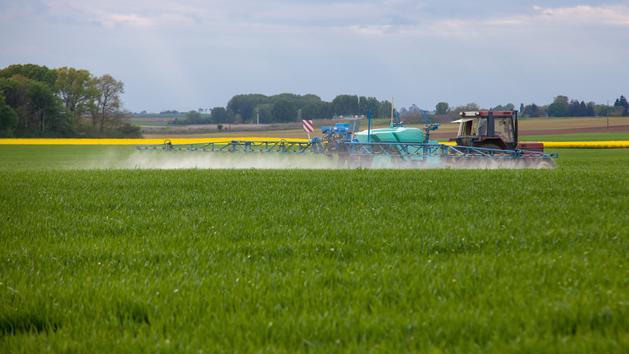The Senate with a right-wing majority should give its approval on Tuesday, October 27, after the deputies, to the controversial bill allowing the temporary reintroduction of bee-killing neonicotinoids to save the beet industry, despite opposition from the left and especially the new environmental group.
Now forming a full-fledged political group in the Senate, environmentalists will in particular be able to request a public ballot on this text examined at first reading, which divides even the marchers.
For the ecologist Joël Labbé, it is a question of
"putting each one in front of his responsibilities"
.
Read also: The return of neonicotinoids "bee killers" validated by the Assembly
The senators have already validated in committee the government text authorizing, by way of derogation, sugar beet growers to use until 2023 seeds treated with pesticides from the neonicotinoid family, banned since 2018.
“We have a concern. efficiency, we need to get to the end of this text quickly, ”
said LR chairperson of the Economic Affairs Committee Sophie Primas, rapporteur for the text.
The senators provided editorial clarifications in committee, but
"the major balances of the text have been preserved"
, with the aim of rapid final adoption.
The derogations should in fact be effective no later than December, to give time for manufacturers to produce the seeds necessary for sowing in March.
The cause is a green aphid which transmits jaundice to beets, a disease that weakens the plant, leading to a significant loss of yield.
Read also: Traces of neonicotinoids found in 10% of plant foods
The senators, however, worried in committee of the
"legal robustness"
of the text and asked the government to consolidate it.
By reserving the derogations only to sugar beets, it would in fact run a risk of unconstitutionality with regard to the principle of equality before the law.
Denounced on the left as
"a step backwards"
,
"a regression of environmental law"
, the bill will meet a barrage of rejection motions and deletion amendments.
The new environmental group, which will be able to cut its teeth on the first text relating to the environment since the start of the session, intends to oppose it
"with force"
, indicates Joël Labbé.
Convinced of
"the extreme toxicity of these pesticides"
which threaten "the
entire chain of biodiversity"
, the elected ecologist defends
"a change in agricultural practice"
.
The Nicolas Hulot Foundation on Twitter called on senators to say
"NO to the bill!"
.
For the Foundation,
“we don't have to choose between bees and farmers!”
Read also: Neonicotinoids: opponents of "bee-killing" pesticides are mobilizing
After the vote at first reading in the Assembly at the beginning of October, the Minister for the Ecological Transition Barbara Pompili had said
"to fully assume"
the temporary reintroduction of neonicotinoids.
“I am an environmentalist, I want to get rid of these pesticides.
Simply when you have an obstacle, either you can put your head in the sand as some do by saying
'there's only one, we have to',
or we act responsibly, that's what I do tried to do, ”
she defended herself against criticism.
In 2016, Parliament voted to ban phytosanitary products based on neonicotinoids, a family of pesticides that act on the central nervous system of insects and mammals, a ban that has been fully applicable since 2018. Even if research avenues are showing promise, no alternative is currently available for producers.
Read also: Neonicotinoids: the beet industry presents a transition plan to the Minister of Agriculture
Sugar beet was rather preserved from jaundice in 2019, but the year 2020 promises to be catastrophic due to a massive and premature arrival of aphids due to a mild winter.
In her report, Sophie Primas mentions,
"in view of the first grubbing-up"
, yield losses estimated
"between 13 and 20%"
on the national territory, which includes unaffected areas.
"In some departments, average losses will probably be beyond 40 or even 50%"
, according to this report.
In addition to the agricultural emergency, there is the industrial emergency, explains the rapporteur.
In total, the sector represents more than 45,000 jobs, direct and indirect.
The argument of French sovereignty is also put forward, EU countries such as Belgium, the Netherlands or Germany, continuing to use neonicotinoids, after having obtained exemptions.



/cloudfront-eu-central-1.images.arcpublishing.com/prisa/D3KKZZA5HZBEDA4TSYE7XVGSKQ.jpg)





